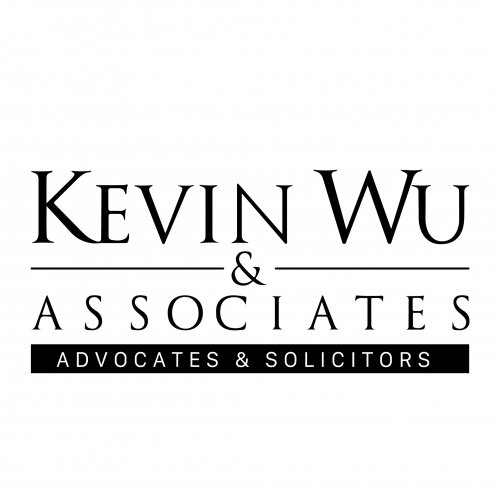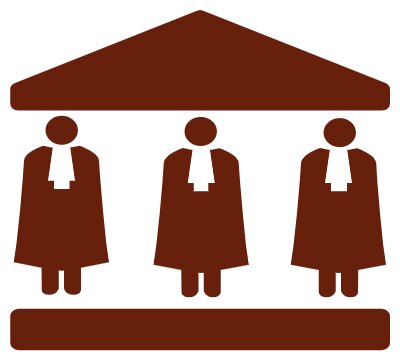Best Education Law Lawyers in Kuala Lumpur
Share your needs with us, get contacted by law firms.
Free. Takes 2 min.
List of the best lawyers in Kuala Lumpur, Malaysia
About Education Law in Kuala Lumpur, Malaysia
Education Law in Kuala Lumpur, Malaysia, encompasses a range of legal issues related to the provision, governance, and regulation of educational institutions and their stakeholders. This field of law addresses the rights and responsibilities of students, teachers, and educational institutions. Key areas include education policies, school governance, student rights, teacher employment, educational standards, and issues relating to discrimination and equal access to education. In Malaysia, Education Law works within the framework established by federal laws, policies from the Ministry of Education, and local regulations applicable to Kuala Lumpur.
Why You May Need a Lawyer
Legal assistance may be required in various situations involving Education Law. For instance:
- Disputes concerning student admissions or expulsions.
- Allegations of discrimination or unequal access to education.
- Compliance issues for educational institutions with local and federal regulations.
- Issues related to teacher contracts, employment disputes, or staff grievances.
- Disagreements over intellectual property, particularly in academic or research contexts.
- Special education needs and the associated legal rights of students.
- Navigating education policies and regulatory changes and their impact on schools.
Local Laws Overview
The local laws governing education in Kuala Lumpur are heavily influenced by federal legislation such as the Education Act 1996 and various policies set by the Ministry of Education. Key aspects of these laws include:
- Compulsory Education: Laws requiring certain educational standards and compulsory attendance for school-going children.
- Accreditation and Licensing: Requirements for schools and higher education institutions to be accredited and licensed to operate.
- Private and International Schools Regulation: Regulations specific to the operation of private and international educational institutions.
- Standards for Teachers: Legal provisions related to the qualifications, certification, and conduct of educators.
- Special Education: Laws concerning the accommodation and support for students with special educational needs.
Frequently Asked Questions
1. What is Education Law?
Education Law refers to the legal principles and regulations governing education policies, educational institutions, and the rights and responsibilities of teachers, students, and parents.
2. Who regulates education in Malaysia?
The Ministry of Education, Malaysia, is primarily responsible for regulating education, setting standards, and enforcing policies at all educational levels.
3. What constitutes discrimination in education?
Discrimination in education may involve unfair treatment based on race, gender, disability, religion, or other protected characteristics, resulting in unequal access to educational opportunities.
4. Can foreign nationals attend local schools in Kuala Lumpur?
Yes, foreign nationals can attend both local and international schools in Kuala Lumpur, depending on their visa status and compliance with school admission requirements.
5. Are there specific laws for private and international schools?
Yes, private and international schools are subject to specific regulatory requirements in Malaysia, including licensing, accreditation, and curriculum standards.
6. How can disputes between parents and schools be resolved?
Disputes may be resolved through appeals to the Ministry of Education, mediation, or legal action if necessary, depending on the nature of the dispute.
7. What rights do students with special educational needs have?
Students with special educational needs are entitled to appropriate accommodations and support under Malaysian law to ensure equal educational opportunities.
8. Can schools enforce a dress code?
Schools may implement and enforce dress codes as part of their policies, provided they are reasonable and non-discriminatory.
9. What should I do if I face a legal issue related to education?
Consider consulting with a lawyer specializing in Education Law to explore your options, understand your rights, and determine the best course of action.
10. How do teacher employment laws protect educators?
Teacher employment laws cover qualifications, contracts, working conditions, and grievance procedures to protect educators' rights and ensure a fair employment environment.
Additional Resources
For individuals seeking further assistance or information on Education Law in Kuala Lumpur, consider the following resources:
- Ministry of Education, Malaysia: Responsible for overarching educational policies and regulations.
- National Union of the Teaching Profession (NUTP): Provides support and resources for educators.
- Legal Aid Department: Offers legal advice and support, including issues related to education.
- Public Complaints Bureau: A government agency where individuals can lodge complaints about educational institutions or policies.
Next Steps
If you require legal assistance in Education Law, consider taking the following steps:
- Identify the specific nature of your legal concern or question.
- Reach out to legal professionals or law firms specializing in Education Law.
- Schedule a consultation to discuss your case and explore available legal remedies.
- Gather all relevant documentation, correspondence, or evidence related to your issue before meeting with your lawyer.
- Follow your lawyer's advice on actions to take or not take to protect your rights and interests effectively.
Lawzana helps you find the best lawyers and law firms in Kuala Lumpur through a curated and pre-screened list of qualified legal professionals. Our platform offers rankings and detailed profiles of attorneys and law firms, allowing you to compare based on practice areas, including Education Law, experience, and client feedback.
Each profile includes a description of the firm's areas of practice, client reviews, team members and partners, year of establishment, spoken languages, office locations, contact information, social media presence, and any published articles or resources. Most firms on our platform speak English and are experienced in both local and international legal matters.
Get a quote from top-rated law firms in Kuala Lumpur, Malaysia — quickly, securely, and without unnecessary hassle.
Disclaimer:
The information provided on this page is for general informational purposes only and does not constitute legal advice. While we strive to ensure the accuracy and relevance of the content, legal information may change over time, and interpretations of the law can vary. You should always consult with a qualified legal professional for advice specific to your situation.
We disclaim all liability for actions taken or not taken based on the content of this page. If you believe any information is incorrect or outdated, please contact us, and we will review and update it where appropriate.
















